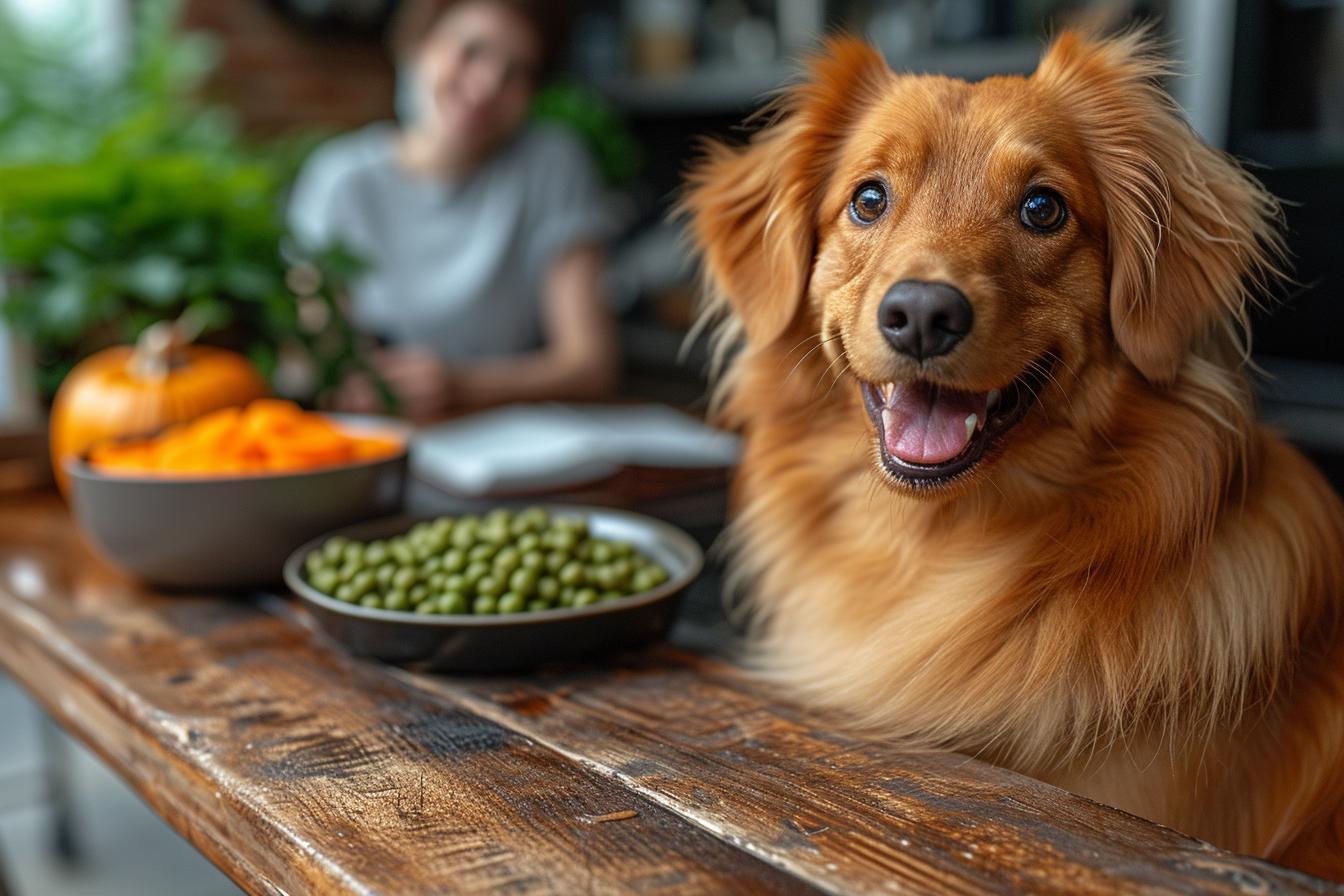When it comes to caring for our beloved canine companions, ensuring they receive a balanced and nutritious diet is paramount to their health and happiness. While proteins and fats often take center stage in discussions about dog nutrition, fiber is an essential component that is sometimes overlooked. Just like humans, dogs benefit greatly from the inclusion of fiber in their diets. This often underestimated nutrient plays a crucial role in maintaining a healthy digestive system, aiding in weight management, and even supporting overall well-being. In this article, we will explore the importance of fiber in a dog’s diet, shedding light on its various benefits and offering practical advice on how to incorporate it effectively. Whether you’re a seasoned pet owner or new to the world of dog care, understanding the role of fiber can help you make informed decisions that contribute to your furry friend’s long and vibrant life.
Understanding the Role of Fiber in Canine Health
Fiber plays a crucial role in maintaining a healthy digestive system for dogs. It acts as a natural regulator, ensuring that their digestive tract functions smoothly. Soluble fiber absorbs water and forms a gel-like substance, which can help slow down digestion and enhance nutrient absorption. This is particularly beneficial for dogs with sensitive stomachs or those prone to diarrhea. On the other hand, insoluble fiber adds bulk to the stool, promoting regular bowel movements and preventing constipation. A balanced fiber intake can also aid in managing weight, as it helps dogs feel fuller for longer periods, reducing the likelihood of overeating.
Incorporating fiber into a dog’s diet can also contribute to overall well-being. Here are some benefits of fiber for dogs:
- Supports Digestive Health: Helps maintain a healthy gut flora and reduces the risk of gastrointestinal disorders.
- Controls Blood Sugar Levels: Slows down the digestion of carbohydrates, leading to more stable blood sugar levels.
- Reduces Risk of Anal Gland Issues: Aids in the expression of anal glands by adding bulk to stools.
- Enhances Coat Condition: A healthy digestive system can lead to better nutrient absorption, contributing to a shinier coat.
When choosing fiber sources, consider options like pumpkin, sweet potatoes, and certain grains that are safe and beneficial for dogs. Always consult with a veterinarian to determine the appropriate amount of fiber based on your dog’s specific needs and health conditions.

How Fiber Enhances Digestion and Overall Well-being in Dogs
Fiber plays a crucial role in maintaining a healthy digestive system for dogs. By adding bulk to the stool, it facilitates regular bowel movements, helping to prevent constipation. Moreover, fiber acts as a natural prebiotic, fostering the growth of beneficial gut bacteria, which are essential for a balanced digestive environment. This not only aids in nutrient absorption but also strengthens the immune system, contributing to a dog’s overall well-being.
- Weight Management: High-fiber diets can help dogs feel fuller for longer, reducing overeating and assisting in weight control.
- Blood Sugar Regulation: Fiber helps in moderating blood sugar levels, which is particularly beneficial for diabetic dogs.
- Reduced Risk of Colon Issues: By keeping the digestive tract clean, fiber can help lower the risk of colon-related diseases.
Incorporating a suitable amount of fiber into your dog’s diet can lead to a happier, healthier pet. Always consult with a veterinarian to determine the appropriate fiber intake tailored to your dog’s specific needs.

Choosing the Right Fiber Sources for Your Furry Friend
When it comes to selecting fiber sources for your dog, it’s essential to consider both the type and quality of fiber. Natural sources are often the best choice, as they provide additional nutrients and benefits. Look for ingredients such as:
- Pumpkin: Not only is it rich in fiber, but it also contains vitamins and minerals that support overall health.
- Sweet Potatoes: A great source of dietary fiber, these are also packed with antioxidants and beta-carotene.
- Carrots: Low in calories and high in fiber, carrots are excellent for digestion and dental health.
- Oats: This whole grain is gentle on the stomach and provides a good balance of soluble and insoluble fiber.
Incorporating these foods into your dog’s diet can aid in digestion, help maintain a healthy weight, and even improve coat quality. Always ensure that any new additions to their diet are introduced gradually to avoid any digestive upset. With the right fiber sources, you’ll be supporting your furry friend’s health in a delicious and natural way.
Practical Tips for Incorporating Fiber into Your Dogs Diet
Enhancing your dog’s diet with fiber can be both easy and rewarding. Start by incorporating vegetables like carrots, green beans, and sweet potatoes into their meals. These are not only rich in fiber but also provide essential vitamins and minerals. If your dog enjoys fruits, consider adding small amounts of pumpkin or apples (without seeds) for a sweet fiber boost. Always ensure that any new food is introduced gradually to prevent digestive upset.
- Choose High-Fiber Dog Food: Look for commercial dog foods labeled as high-fiber, which are specially formulated to meet your pet’s dietary needs.
- Supplement with Fiber: Consider adding a small amount of plain, canned pumpkin or a sprinkle of psyllium husk to your dog’s regular meals to enhance fiber intake.
- Monitor Water Intake: Ensure your dog has access to plenty of fresh water, as increased fiber can lead to dehydration if not balanced with adequate hydration.
By carefully selecting fiber-rich foods and gradually integrating them into your dog’s diet, you can support their digestive health and overall well-being. Keep an eye on their response and consult with your veterinarian if you notice any adverse effects or if you need personalized advice.

